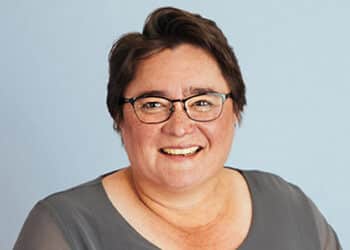A number of Supreme Court cases from several different Australian states have held that an SMSF BDBN can last indefinitely, so long as the deed is written to provide for this.
Then, earlier this year, Hill v Zuda Pty Ltd [2021] WASCA 59 appeared to have answered this question for all Australian jurisdictions, namely, that yes, an SMSF BDBN can last indefinitely, so long as the deed is written appropriately. However, Hill v Zuda came with one important caveat: it acknowledged that it only applies “until such time as the decision is overruled by the High Court”.
There is no automatic right to have an appeal heard by the High Court. At best, a party has the right to apply for the High Court to consider hearing an appeal.
The daughter of the deceased SMSF member in Hill v Zuda (i.e. Ms Hill) applied to the High Court for special leave to appeal. The High Court has determined that there will be a grant of special leave to appeal in this matter.
Accordingly, the High Court will determine whether an SMSF BDBN can last forever! Therefore, soon, there will be significant clarity Australia-wide in regards to this important matter.
Implications for advisers and SMSF trustees/members right now
For the time being, it is “business as usual”. Namely, it is still best practice to have a deed that expressly states that a BDBN can last indefinitely. That way, if the High Court determines that the BDBN can last indefinitely, then no further action is required.
However, even if the High Court determines that the BDBN can not last indefinitely, then so long as a new BDBN is made within three years, the fund and members are in no worse a position than had the deed said that a BDBN can only last three years. Until the High Court delivers its judgment, you may wish to check on members with BDBNs that are approaching the three-year sunset period to see if the member wants to renew their nomination, just in case.
However, there is another important implication. A BDBN is perhaps the most long-standing and well-understood tool in SMSF succession planning. Yet, even basic questions regarding a BDBN (e.g. how long it can last for) can prove novel and uncertain. We do not recommend the solution to look for more complex and more novel alternative solutions to BDBNs as we suspect this may give rise to more complexity and uncertainty.
This is especially the case for advisers who are not qualified as lawyers who assist with such documents. Generally, the prudent solution is to try to keep things as simple as possible and stick with the “well-trodden road” (i.e. there are numerous cases on BDBNs, but are there any cases on the alternatives?).
Steps to keep things as simple as possible can include:
- ensuring there are no deficiencies in the document trail of the SMSF – if there are deficiencies, one sound option is to commence a new SMSF;
- using a BDBN and then remaking a new BDBN every three years; and
- ensuring that the member is entirely happy with who will be running the SMSF upon death and loss of capacity – if, for example, a second spouse will be running the SMSF upon the member’s death but the member wants their child or children to receive their superannuation death benefits, this could easily lead to conflict. Naturally, there is far less scope for conflict if whoever will be running the SMSF upon the member’s death and loss of capacity is also the person who the member wants to receive their superannuation death benefits.
We recommend that every adviser assisting with BDBNs attend appropriate training on BDBNs. Given there is a pending appeal to the High Court on this important issue, you may wish to have your documents and BDBN practices reviewed by a qualified lawyer to ensure you are not at too much risk. Advisers should also make sure they keep up to date with the latest developments.
For the time being, we will be eagerly monitoring this issue to see what the High Court decides! Naturally, if any changes are required, we will move swiftly.
By Bryce Figot (bfigot@dbalawyers.com.au), special counsel, and Daniel Butler (dbutler@dbalawyers.com.au), Director, DBA Lawyers



Slightly off topic but related. There needs to be a law change around the whole trust deed fiasco. If a BDBN can be denied on the basis of a error in executing a deed at some point in the distant past then there is clearly something wrong. We have clients that have had many deed changes over the years. Clearly the same fund. Clearly the intention is to upgrade. Then we discover that one had a spelling error in a member’s name or somehow the “The” from the name of the fund was dropped at some point or a deed has gone AWOL. And now we have no idea if any of the deeds are valid and if so, which one?
There needs to be a law in place that states that where the continuity of the fund is obvious (eg by it’s continued existence and the execution of deed upgrade) that the most recent upgrade is the actual deed regardless of minor errors. A lot of grief could be avoided if this were the case.
The law could also be changed to state that any nomination is binding and non lapsing regardless of the trust deed rules unless the nominated beneficiary is not permitted to be paid by the law. If there is no nomination, or valid beneficiary, then the benefit is to be paid to the estate. It is my understanding that if a deed is in direct conflict with the law, then the law prevails. Of course, I’m not a lawyer so could be wrong yet it seems so simple and removes trustee discretion entirely.
While we are whinging about stupid laws, there could also be some more realistic rules set up around investment strategies. And don’t get me started on pensions, TBARs and all that nonsense.
The law needs fixing and there have been request made for legislative clarification. I will see if this is needed following the High Court delivers it’s judgement. There should be no uncertainty with this point but the legislation is defective.
I for one look forward to the day when we can hold more confident conversations with our clients and not start with the following words ‘WELL, IT DEPENDS…’.
I assume this high court decision will give us clarity, but, I also expect it to create even more work in helping SMSF members undo/rethink their estate planning strategies.
Seriously, the High Court has to waste time on this …..